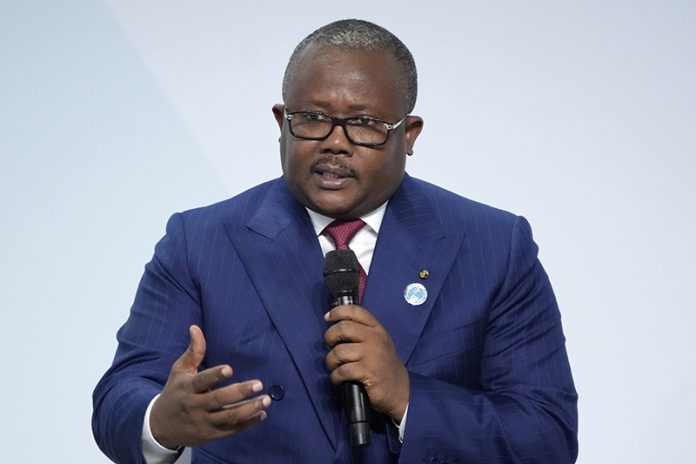
By Chinedu Asadu and Sambu Asana
Associated Press
BISSAU, Guinea-Bissau (AP) — Guinea-Bissau President Umaro Sissoco Embalo issued a decree Monday dissolving the nation’s opposition-controlled parliament, less than six months after it was reconstituted following a similar move by the president in 2022.
Embalo cited last week’s shootout between troops loyal to him and forces controlled by the parliament, which he described as a failed coup.
“The date for holding the next legislative elections will be set in due time in accordance with the provisions of … the Constitution,” the decree stated. “This Presidential Decree comes into force immediately.”
On Monday night, Embalo deployed soldiers at the headquarters of the state television and radio as he sought to change the heads of the broadcast stations said to be loyal to the parliament. “Everything is going well in Bissau,” the nation’s leader said as he attempted to allay fears of yet another political crisis in the capital city. “Democratic achievements are respected and maintained.”
The new executive order referred to the “seriousness” of last week’s shootout in the capital, Bissau, between members of the Presidential Palace Battalion and the National Guard as the former tried to rearrest two ministers under investigation for alleged corruption who had been released from custody by the latter.
The leadership of the parliament rejected the president’s decree Monday, noting that the constitution states that parliament cannot be dissolved in the first 12 months after an election.
“If this situation happens, regardless of the mechanism used, we are in the presence of a subversion of the democratic order or a constitutional coup d’état,” Domingos Simões Pereira, president of the parliament, told reporters.
It is the second time in less than two years that Embalo has dissolved the parliament. Three months after surviving a coup attempt in February 2022, the Guinea Bissau leader did the same thing, citing “unresolvable differences” with the legislature.
Guinea-Bissau’s semi-presidential system limits the president’s powers by allowing the majority party in the parliament to appoint the Cabinet. As a result, the National Guard — which is under the Ministry of Interior — is largely controlled by the opposition-dominated parliament, while the Presidential Palace Battalion is loyal to Embalo.
Embalo, a former army general, was declared the winner of a December 2019 runoff presidential election, which his opponent contested. Tensions have remained between him and the coalition of opposition groups that won the majority in Guinea-Bissau’s parliament in June when the parliament was reconstituted.
Last week’s shooting incident lasted from Thursday night until Friday morning and happened while the president was attending the U.N. climate summit in Dubai, United Arab Emirates. Upon his return, he dismissed Victor Tchongo, the head of the National Guard and said Tchongo hadn’t acted alone when he asked members of the guard to release the officials.



















